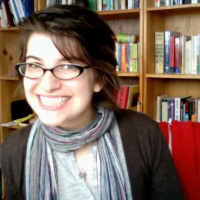This thesis examines the history, development, theory, and practice of distributed denial of service actions as a tactic of political activism. DDOS actions have been used in online political activism since the early 1990s, though the tactic has recently attracted significant public attention with the actions of Anonymous and Operation Payback in December 2010. Guiding this work is the overarching question of how civil disobedience and disruptive activism can be practiced in the current online space. The internet acts as a vital arena of communication, self expression, and interpersonal organizing. When there is a message to convey, words to get out, people to organize, many will turn to the internet as the zone of that activity. Online, people sign petitions, investigate stories and rumors, amplify links and videos, donate money, and show their support for causes in a variety of ways. But as familiar and widely accepted activist tools—petitions, fundraisers, mass letter-writing, call-in campaigns and others—find equivalent practices in the online space, is there also room for the tactics of disruption and civil disobedience that are equally familiar from the realm of street marches, occupations, and sit-ins? This thesis grounds activist DDOS historically, focusing on early deployments of the tactic as well as modern instances to trace its development over time, both in theory and in practice. Through that examination, as well as tool design and development, participant identity, and state and corporate responses, this thesis presents an account of the development and current state of activist DDOS actions. It ends by presenting an analytical framework for the analysis of activist DDOS actions.
About Mols Sauter
Molly Sauter is a Vanier Scholar and PhD candidate in Communication Studies at McGill University in Montreal, QC, researching the politics of disruption in networked communication technology. They are the author of The Coming Swarm: DDoS Actions, Hacktivism, and Civil Disobedience on the Internet. They hold a masters degree in Comparative Media Studies from MIT, and have held research fellowships at the Berkman-Klein Center for Internet and Society, and New America.
Their work has been published in The Atlantic, the Journal of Communication, the Case Western Reserve Law Review, Real Life Mag, Ethnography Matters, HiLow Brow, io9, the National Post, the Globe and Mail, the Los Angeles Times, the American Behavioral Scientist, and the MIT Technology Review, and in collected volumes published by MIT Press and Peter Lang. They have frequently appeared as an expert on technology, culture, and politics on the CBC, NPR, the BBC, PRI, American Public Media, the Boston Globe, and other international outlets. Their research has been featured by Popular Mechanics, BoingBoing, Slate, Der Spiegel, and the Christian Science Monitor.
Thesis: Distributed Denial of Service Actions and the Challenge of Civil Disobedience on the Internet



